
Nick Abbot 10pm - 12am
30 July 2020, 13:33
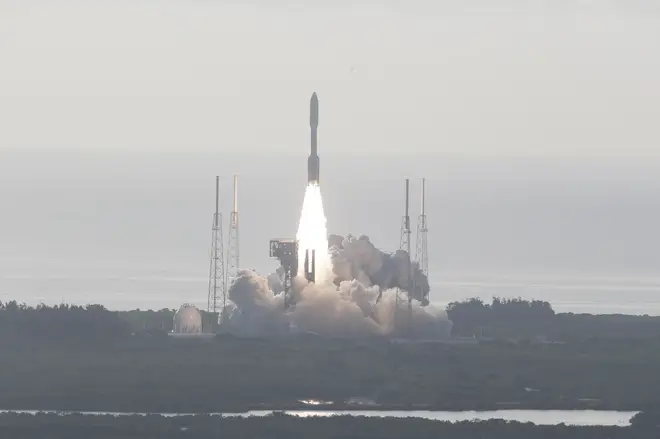
Nasa has launched its Perseverance rover in a historic mission to Mars that will search for signs of alien life.
The Perseverance rover lifted off on the Atlas 5 rocket from Cape Canaveral, Florida, on Thursday lunchtime.
It contains a car-size six-wheeled craft carrying scientific instruments which will hunt for signs of alien life in an ancient Martian lake.
It will now travel 314 million miles over a period of nearly seven months before attempting to land on a 31-mile crater named Jezero.
Bobby Braun, director for planetary science at Nasa's Jet Propulsion Laboratory (JPL), said: "It's a great day, we're all so excited to get started in this way and to be on our way after all this work."
LIFTOFF! The next @NASAMars rover has launched from @NASAKennedy! Watch as we continue @NASAPersevere’s #CountdownToMars: https://t.co/zJwTTpQNwp pic.twitter.com/ZQivm5ezZT
— Jim Bridenstine (@JimBridenstine) July 30, 2020
But he cautioned: "We're almost on the path to Mars, if you will...We still have to have another burn of our upper stage, we have to pass through the night side - or the shadow of the earth - come out on the other side, and find the sun.
"Once we do, we'll truly be on our way to Mars. We'll have a spacecraft that is powersafe and we can communicate with - and our journey will truly begin."
It is the third mission heading to the Red Planet this month after launches by the UAE and China.
Landing on Mars is notoriously difficult because of its thin and dynamic atmosphere - a feat that has been described as "seven minutes of terror".
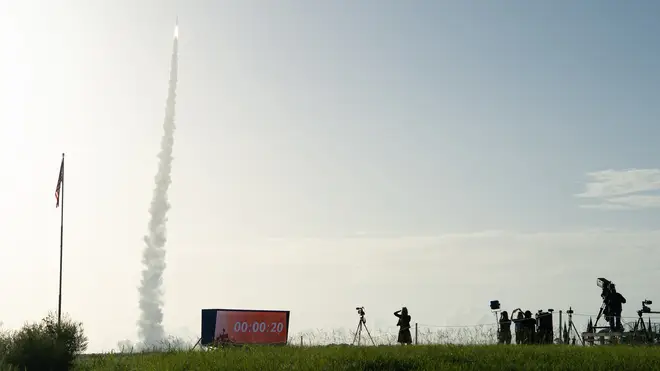
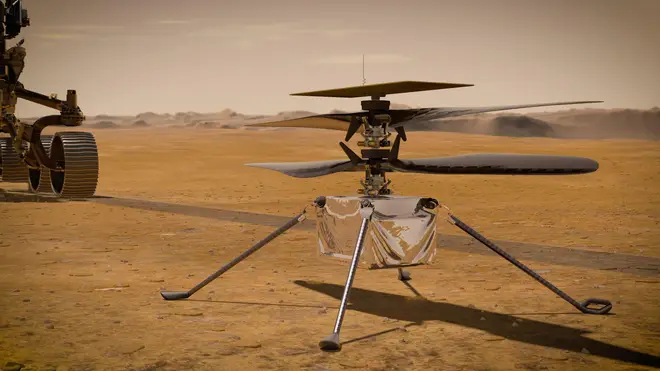
Only a handful of functioning Nasa probes and rovers have successfully landed on the Martian surface. More than half of the spacecraft sent there have either blown up or crashed into the planet.
Satellite images suggest Jezero, located on the western edge of Isidis Planitia - a giant impact basin just north of the Martian equator, may have been a lake more than 3.5 billion years ago, when Mars was warmer and wetter.
Scientists believe evidence of microbial life could be preserved in the clay and muddy rocks in the crater, if it ever existed on the planet.
Along with several sophisticated instruments that will gather information about Mars' geology, atmosphere, and environmental conditions, the rover is also carrying a small 1.8kg helicopter.
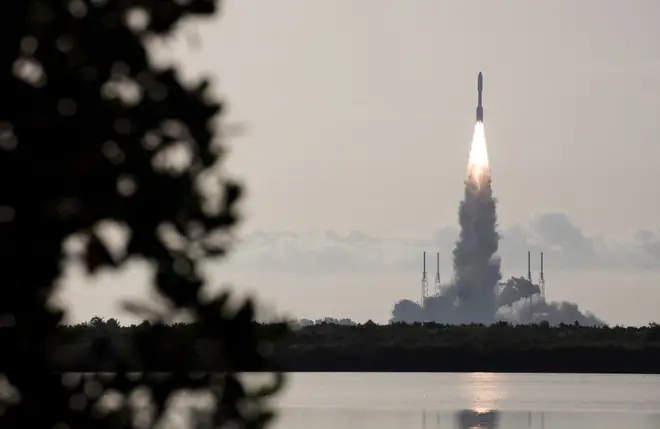
Called Ingenuity, the copter will fly short distances and will mark the first attempt at powered, controlled flight on another planet. If successful, it could lead to more flying probes on other planets.
Perseverance will also trial technologies to help astronauts make future expeditions to Mars.
One such device includes an instrument, called Moxie, that will practise making oxygen from the planet's atmosphere which is mostly made up of carbon dioxide.
Meanwhile, scientists in the UK will help Perseverance select the Martian samples to be brought back to Earth.
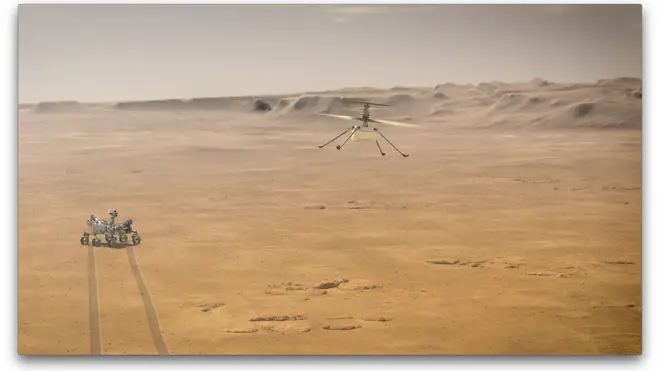
Researchers at Imperial College London and the Natural History Museum will identify samples that could contain evidence of past life and study the mineralogy and geochemistry of the different rocks found in the crater.
Professor Mark Sephton, an astrobiologist at Imperial, said: "I hope that the samples we select and return will help current and future generations of scientists answer the question of whether there was ever life on the Red Planet.
"With one carefully chosen sample from Mars, we could discover that the history of life on the Earth is not unique in the Universe."
Sue Horne, head of space exploration at the UK Space Agency, told the PA news agency: "We will continue to explore the heavens so long as the moon, Mars and the myriad celestial bodies beyond spark fires in our curiosity and if Perseverance helps us find life on Mars, it will be a defining moment for humankind.
"The UK Space Agency is supporting these endeavours to explore our solar system with leading-edge robotics, and it is a credit to our expertise in the UK that researchers from both Imperial College London and the Natural History Museum are part of the international crack team working on this Nasa mission."